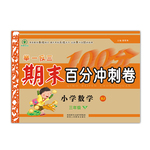题目内容
When people find something valuable and return it to its owner, they are often given a reward. This is because the person not only found what was lost but also spent time 46 its owner or taking it to the police station.
There was once a young boy 47 found a woman’s purse in a shopping centre. Inside the purse there 48 some money and the woman’s driving license. Her name and 49 were printed on the license, so the boy knew where she lived. That evening he went to her house and 50 her door. When she opened it, he said, “I found your purse,” and handed it to her.
“Thank you very much,” she said. She opened her purse and took out all the money. She wanted to give the boy a small reward, 51 there were only bills of $20 in the purse and she thought that $ 20 was too 52 to give the boy. “I’m sorry,” she said, “but I don’t have any small 53 to give you.”
The boy said, “That’s all right,” and he went away.
A few days later he found 54 woman’s purse. It also had her driving license in it, so he knew where she lived. He went to her house and said “I found your purse,” and handed it to her.
“Thank you very much, “she said. She opened her purse and took out all her money.
“That’s 55 ”, she said, “Before I lost my purse I had a $100 bill and a $20 bill in it. Now I have a $100 bill, a $10 bill and two $5 bills.”
“Yes,” the boy said, and smiled.
46. A. to find B. finding C. find
47. A. who B. whose C. which
48. A. is B. were C. was
49. A. e-mail B. address C. age
50. A. cut down B. knocked on C. broke into
51. A. so B. but C. or
52. A. little B. few C. much
53. A. change B. menu C. purse
54. A .another B. the other C. other
55. A interesting B. exciting C. strange
【主旨大意】这篇短文主要是讲小男孩两次拾到钱包,归还给主人时,发生的一些有趣的故事。
46. B 根据spend …(in) doing sth. 花费时间(或)金钱做某事, find “找到,寻找”意思。
47. A 考查定语从句,先行词是人,故引导词用who。
48. C there be 中的be动词由后面的主语单复数形式决定的,即some money 为不可数名词,“一些钱”,整篇故事用的过去式,故用was。
49. B 根据下文“能找到她的住址”,可确定名字和地址都印在驾照上。
50. B knock on “敲门”,break into “破门而入”,故B正确。
51. B 根据下文“I’m sorry”可知,“她没有给小男孩报酬”,所以用转折连词but。
52. C 根据句意可知,“要给男孩$20,感觉有点太多”,所以too much正确。
53. A 根据句意可知“他没有零钱给这个孩子”,故选change “零钱”。
54. A another “又一,再一”的意思。
55. C 根据下文可知,“钱包里钱数没少,但是钱的面值有所变化”,所以她感到奇怪,故C正确。

 举一反三期末百分冲刺卷系列答案
举一反三期末百分冲刺卷系列答案阅读理解
We can not live a modern life without traveling. The fastest way of traveling is by air. With a plane
one can travel in one day to places which it took a month or more to get to a hundred years ago.
Traveling by train is slower than by plane, but one can see the country he is traveling through.
Modern trains have comfortable seats and dinning-cars. They make even the longest journey enjo
yable.
Some people prefer to travel by sea when possible. There are large luxury liners or river boats
.They are not as fast as trains or planes, but traveling by sea is a very pleasant way to spend a holi
day.
Many people like to travel by car. They can make their own timetable. They can travel hundred
s of miles a day, just as their wish. They can stop wherever they want to see something interestin
g or to enjoy a good meal at a good restaurant, or to spend the night at a hotel. That is why peopl
e choose traveling by car for pleasant trips, while they usually take trains or planes for business.1.According to the passage, the fastest way of traveling is _______.
|
A.bycar |
B.bytrain |
C.byplane |
D.bysea |
2. If we travel by car, we can _________.
|
A.enjoythelongestjourney |
B.travelonlyfiftymilesaday |
|
C.makeourowntimetable |
D.traveltoaveryfarplaceinafewminutes. |
3. When people travel on business, they usually take _________.
|
A.aboatoratrain |
B.acaroratrain |
|
C.aplaneoracar |
D.atrainoraplane |
4. _______ have comfortable seats and dinning-cars.
|
A.Cars |
B.Moderntrains |
C.Planes |
D.Buses |
5.If possible, people like traveling by sea because _______ .
|
A.itisasfastastrainsandplanes |
|
B.itisapleasantwaytospendaholiday |
|
C.itisverycheap |
|
D.itcanstopwherevertheylike |
